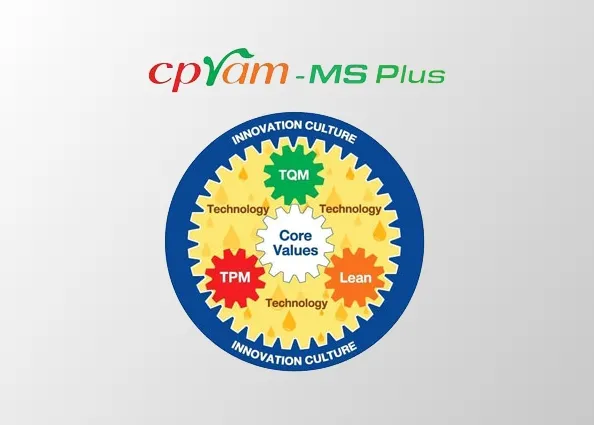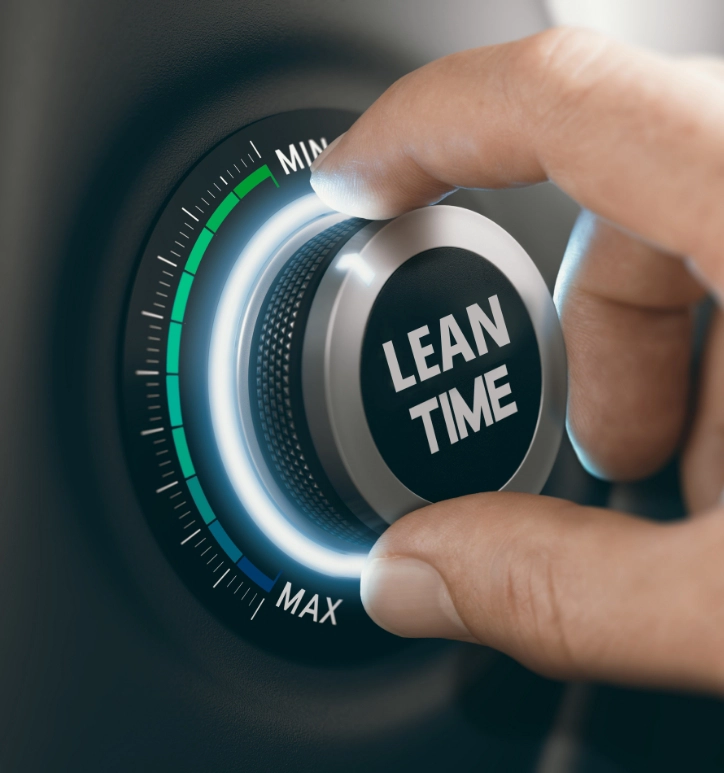
CPRAM management system or CPRAM-MS is a management system developed internally by the company. This integrates three modern management systems - Total Quality Management (TQM), Total Productive Maintenance (TPM) and LEAN, creating a perfect working condition under “innovation culture” of the CPRAM values.
Total Quality Management (TQM) is an activity relying on a scientific systems comprising all sections of our organization by attaching great importance to customer satisfaction.


encourages cooperation among all groups and all people for the purpose of achieving the highest all-round efficiency of the production system with determination to reach the desired targets of zero accidents, zero rejects and zero damage to machinery.
Focused Improvement (FI) is the central pillar of the creation of the system and the development of human resources that enable production costs to decrease by reducing the amount of damage during the production process as well as the whole supply chain with the purpose of aiming for a lean production.
Autonomous Maintenance (AM) is the central pillar of the creation of the system under which employees use machinery properly and safely that also enables employees to keep machinery in good condition by themselves and set up a perfect production process that produces goods of a quality that meets customers’ demands.
Planned Maintenance (PM) is the central pillar of the determination to prevent any kind of defects or damage, any deteriorating condition caused by outside factors and any deteriorating condition caused by wear and tear as the result of normal use that is based on the idea of the 7-step PM which aims for low maintenance cost and zero breakdown.
Education & Training (ET) is the central pillar of the creation and development of vocational training and skill practice, including a rise in the abilities of employees and mechanics in charge of repairs and maintenance with regard to techniques.
Initial Phase Management (IP) is the central pillar of the use of innovations and technologies for the design and development of new products including new machinery to be able to meet the demand throughout the supply chain according to work plans made and costs assessed so as to achieve the production capability according to the target set, and without any rejects after the mass production has commenced.
Quality Maintenance (QM) is the central pillar of the creation of a system that prevents the occurrence and any re-occurrence of any defects in goods based on the Figure Eight Model by applying the Visual Control, Poka-yoke and QRQC principles to the 4M Condition and throughout the supply chain in order to meet the zero-defect target.
Office Improvement (OI) is the central pillar of the creation of a system intended to eliminate waste and loss caused by work and improve work efficiency.
is the central pillar of the creation of a system and support for the reducing of accidents to zero and the getting rid of any pollution in the workplace throughout the use of energy which includes responsible use of resources.

Lean Management is the idea of managing the production process with the intention of reducing the 8 types of loss for nothing so as to be able to deliver goods desired by customers within the deadline.